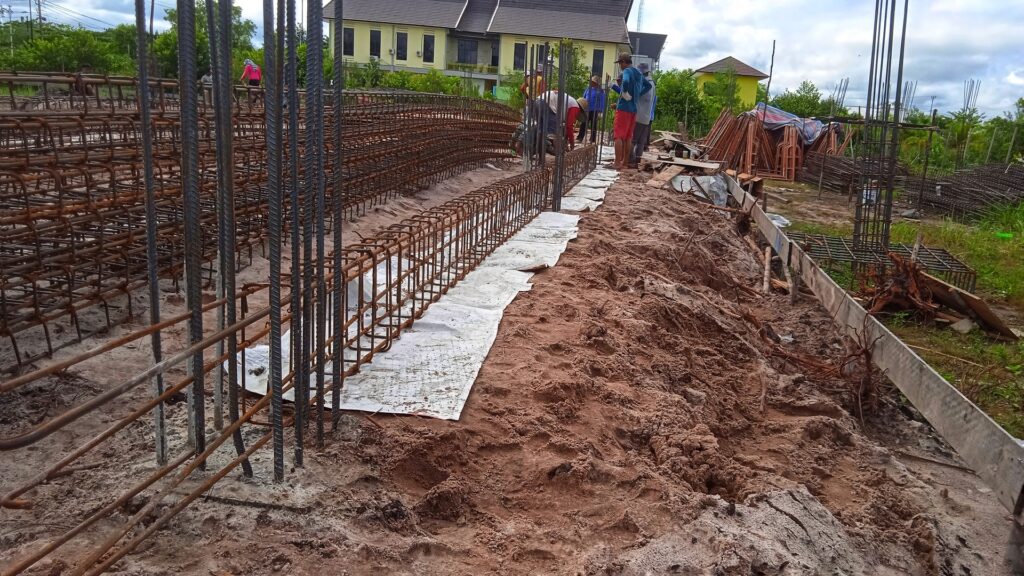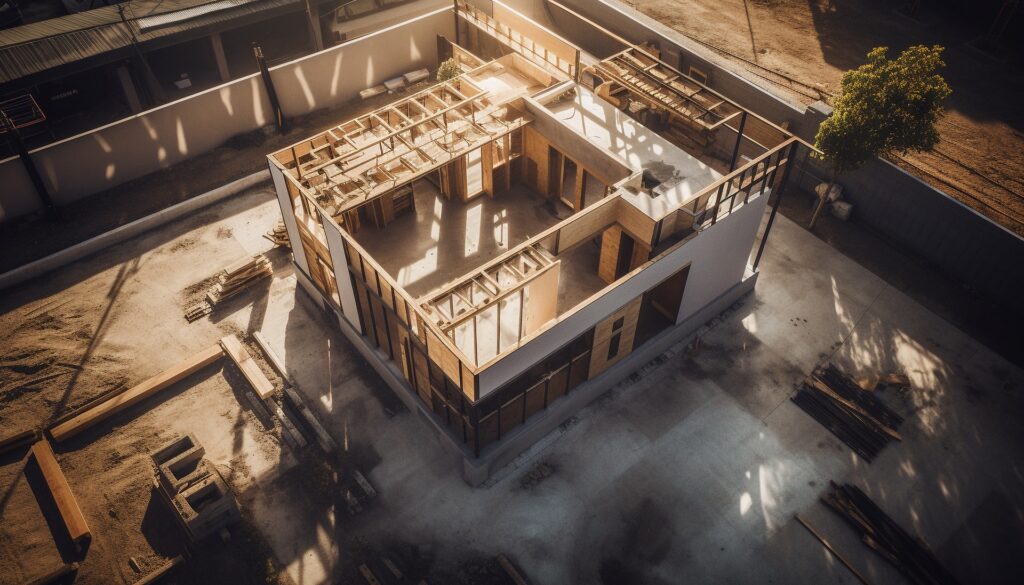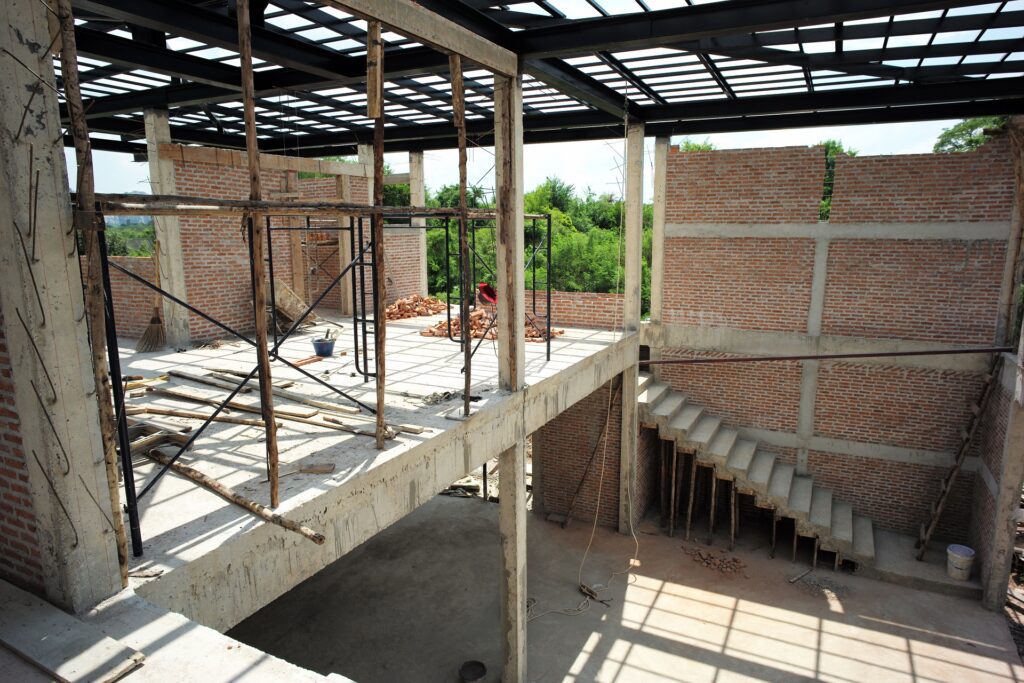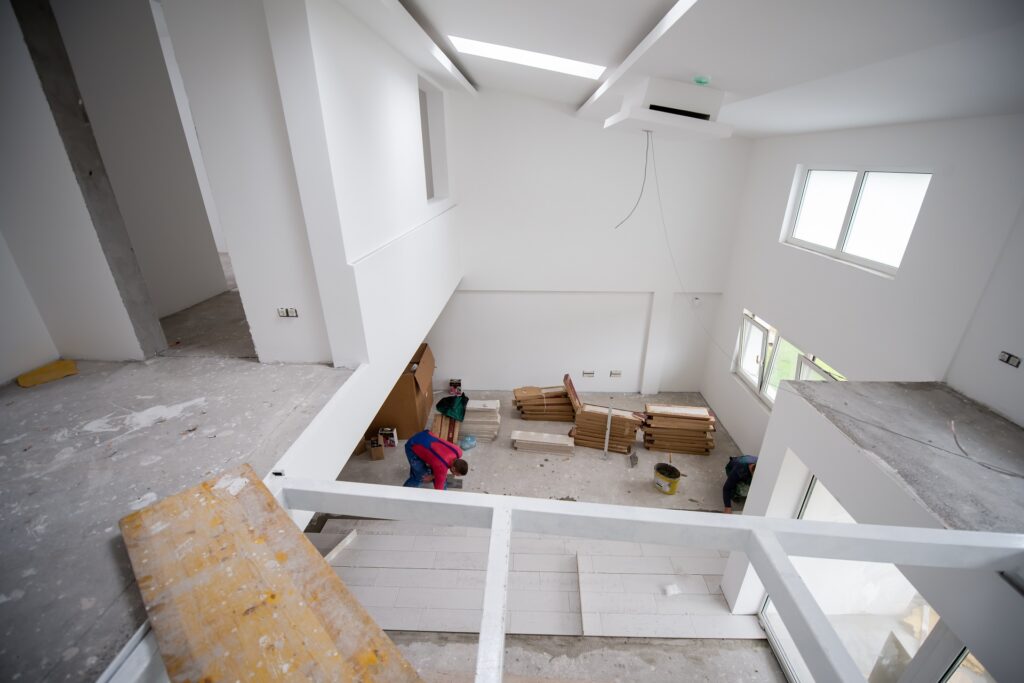Building a villa is not just about creating a home; it’s about investing in a space that will stand the test of time. Ensuring the quality of construction is crucial for the long-term durability, safety, and aesthetic appeal of your villa. Without the right quality control measures, even the most beautiful designs can fall short, leading to costly repairs, structural issues, or compromised safety. As a villa owner, you want to ensure that every phase of the construction process reflects the highest standards—right from the initial site preparation to the final finishes.

By implementing regular quality control checks and conducting thorough inspections, you can rest assured that your villa will meet both industry standards and your own expectations. In this article, we’ll walk you through the essential steps to guarantee top-notch craftsmanship and ensure that your villa is not only visually stunning but also structurally sound for years to come.
Quality Control Starts with Detailed Planning
Selecting the Right Contractors and Materials
Ensuring the quality of villa construction begins long before the first brick is laid. The selection of the right contractors and high-quality materials sets the tone for the entire project. When choosing contractors, it’s essential to select those with a proven track record in villa construction. Look for professionals who are well-versed in local building codes, regulations, and the specific challenges of building in your location, whether it be coastal areas or mountainous terrain. Check their references, visit their previous projects, and speak to past clients to ensure they have consistently delivered high-quality results.
Similarly, the quality of the materials used plays a huge role in the durability and overall appearance of your villa. Opt for premium materials such as high-grade concrete, seasoned wood, stainless steel, and weather-resistant finishes. Compromising on materials may lead to structural issues like cracking, warping, or premature deterioration, resulting in higher maintenance costs in the future. By investing in top-tier materials, you protect your villa from wear and tear and ensure it stands strong for decades.
Creating a Detailed Project Plan
A detailed project plan is fundamental to maintaining quality throughout the villa’s construction. This plan should include comprehensive architectural designs, engineering specifications, a well-defined timeline, and a realistic budget. The project plan acts as a roadmap, guiding the construction team and stakeholders through each phase of the build, from excavation to final finishes.
With a clear project plan, all parties involved, from the architect to the contractors, will have a shared understanding of the project’s scope and quality expectations. Detailed plans also prevent misunderstandings, reduce the risk of costly errors, and ensure that every aspect of the construction aligns with the villa owner’s vision. A well-structured plan promotes accountability, ensuring that deadlines are met and that quality checks are integrated at every critical phase of the construction process.

Regular Inspections During the Construction Process
Pre-Construction Site Inspections
Before construction begins, conducting a pre-construction site inspection is essential to ensure that the land is suitable for building a villa. This inspection involves evaluating soil conditions, existing drainage systems, and any potential environmental factors that could affect the villa’s foundation. Understanding the soil’s stability is crucial to prevent future structural issues such as foundation cracks or uneven settling. A geotechnical engineer can assess the land to determine whether soil treatments or adjustments, such as grading, are necessary to support the construction.
Additionally, ensuring that all necessary permits and zoning approvals are secured is a critical step before breaking ground. These approvals verify that the construction adheres to local regulations and building codes, reducing the likelihood of legal complications or construction delays. Taking the time to inspect the site and address any potential challenges early on sets the stage for a smooth construction process.
Structural Integrity Checks
Ensuring the structural integrity of the villa is one of the most important aspects of quality control. Regular inspections should be scheduled at critical points in the construction process, including after the foundation is laid, once the framing is completed, and during roofing installation. These inspections, often conducted by a structural engineer, focus on verifying that key structural elements such as columns, beams, load-bearing walls, and foundations meet safety and engineering standards.
Structural integrity checks are particularly important in regions prone to extreme weather conditions such as heavy winds or tropical storms, ensuring the villa can withstand these natural forces. By catching issues early, these inspections prevent costly repairs later and guarantee that the villa remains safe and durable for years to come. Additionally, following these milestones allows for adjustments and corrections without causing significant delays in the project timeline.
Monitoring Quality During the Build
Electrical and Plumbing Systems
Ensuring the quality of your villa’s electrical and plumbing systems is crucial for both safety and long-term functionality. Electrical systems should be inspected throughout the build to verify proper installation, including safe grounding, well-connected circuits, and wiring that can handle the anticipated electrical load from modern appliances, lighting, and technology systems. Failure to adhere to these standards can lead to short circuits, fire hazards, or malfunctioning devices, which could be costly and dangerous.
Plumbing installations should be equally scrutinized to ensure leak-free connections, proper water pressure, and efficient drainage systems. Even minor errors in the plumbing phase can lead to severe issues, such as water damage, mold growth, and the need for future repairs. Therefore, both electrical and plumbing systems should be inspected by certified professionals at multiple stages before they are sealed behind walls or ceilings. This proactive approach helps catch potential problems early and ensures that these essential systems are both functional and safe for the long term.
Ensuring Precision in Finishing Work
While the structural and mechanical systems are critical, the finishing work is what gives your villa its polished, luxurious look. Attention to detail is paramount when it comes to tasks like tiling, painting, and woodwork. Tiling should be done with precision, ensuring that tiles are perfectly aligned and grout lines are even. Uneven tiles or mismatched patterns can detract from the overall aesthetic and require costly rework.
Similarly, painting must be done smoothly, with consistent color and no visible brush strokes or imperfections. Poorly applied paint can result in an uneven finish that undermines the villa’s high-end appeal. Woodwork, whether it’s for cabinetry, moldings, or flooring, must also be executed with accuracy to ensure clean lines and a seamless fit.
Conduct thorough inspections of all finishing work before the final stages of the build are complete. This ensures that the quality of craftsmanship meets your standards and prevents the need for touch-ups or redos, which can delay project completion and add unnecessary costs. By prioritizing quality control in the finishing stages, you guarantee that the villa’s luxury aesthetic is fully realized.

Post-Construction Quality Control Checks
Final Walkthrough and Inspection
After your villa construction is complete, a final walkthrough with your project manager or contractor is essential to ensure every aspect of the build meets your expectations. This walkthrough is your last chance to catch any issues before moving in. During this process, pay close attention to finishes, as even small imperfections can affect the overall look and feel of the villa. Check for uneven surfaces, poor paint application, and gaps in tiling. Inspect every room to ensure that electrical outlets and plumbing fixtures are working correctly, that doors and windows open and close smoothly, and that locks are functioning as they should.
Create a punch list that includes any items that need attention or correction. This might include minor adjustments to the flooring, cracks in the walls, or issues with cabinetry. Ensure that all listed items are addressed by the contractor before you sign off on the project. A thorough final walkthrough ensures that your villa’s construction is completed to the highest standards of quality and that you move into a flawless home.
Building Code Compliance Check
Before officially moving into your newly constructed villa, it’s crucial to verify that the building complies with local building codes and safety standards. A certified building inspector will need to evaluate your property to ensure it adheres to regulations governing fire safety, electrical systems, plumbing, and structural integrity. These inspections ensure that your villa is safe for occupancy and meets all required standards set by local authorities.
Passing this compliance check gives you the confidence that your villa is not only aesthetically beautiful but also structurally sound and secure. From proper ventilation and fire exits to reliable electrical grounding, having your villa pass the building code compliance check is the final assurance of quality and safety for your new home.
Final Quality Assurance and Maintenance
Ensuring the longevity of your villa doesn’t stop at the completion of construction. Final quality assurance measures and a clear maintenance plan are essential to keep the villa in excellent condition and avoid costly repairs down the line.
Warranties and Long-Term Maintenance Plans
One of the key steps in final quality assurance is securing comprehensive warranties from your contractor. These warranties typically cover both labor and materials, protecting you from any defects or issues that may arise within a specified period after the project is finished. It’s important to clarify the terms of these warranties, including the length of coverage and the specific aspects of the construction that are included. For example, roofing, foundation work, and structural integrity might each have different warranty periods.
Beyond warranties, setting up a long-term maintenance plan is essential for preserving the quality of your villa over time. Regular inspections and upkeep—such as checking electrical systems, inspecting plumbing, and maintaining exterior elements like roofing and walls—will help identify potential issues early and prevent them from escalating into costly problems. Additionally, cleaning gutters, re-sealing windows, and ensuring that the HVAC systems are serviced annually are all part of a robust maintenance plan.
This proactive approach ensures that your villa remains structurally sound and aesthetically pleasing for years to come, protecting your investment and extending the life of the property.
Heveatecture’s Commitment to Quality and Longevity
Heveatecture, we understand that building a villa is not just about creating a beautiful home—it’s about ensuring that every aspect of the construction is designed to stand the test of time. Our team is dedicated to maintaining the highest standards of craftsmanship, from the initial site inspection to the final touches. But our commitment doesn’t end when the last brick is laid.
Tailored Quality Control Inspections
Throughout the construction process, Heveatecture places great emphasis on quality control checks at every stage. By conducting regular site inspections, monitoring material quality, and ensuring that all work adheres to the local building codes, we ensure that each villa is built with precision and care. Our project managers work closely with clients to address any concerns promptly and ensure that every aspect of the build meets exacting standards.
Long-Term Support for Maintenance and Upkeep
We believe that a successful project continues beyond the construction phase. That’s why Heveatecture offers long-term support for villa owners, providing tailored maintenance plans designed to keep the villa in peak condition. Whether it’s routine checks on plumbing systems, exterior care, or managing any potential warranty claims, we’re committed to ensuring that your villa remains as stunning and functional as the day it was completed. Our goal is to create not just a home, but an enduring legacy of quality and durability for every client we work with.

Conclusion
Ensuring the quality of your villa construction is a comprehensive process that requires careful planning, diligent inspections, and ongoing attention to detail. From the moment the land is assessed to the final walkthrough, every step must be meticulously monitored to guarantee that the villa meets the highest standards of safety, durability, and craftsmanship. By selecting the right contractors, using quality materials, and conducting thorough quality control checks throughout the project, you can ensure that your villa is built to last.
At the end of the construction phase, post-construction inspections and building code compliance checks will confirm that your villa is not only visually stunning but also structurally sound and safe for occupancy. Beyond construction, warranties and a proper maintenance plan will help preserve the quality of your villa for years to come, protecting your investment and offering peace of mind.
Building a villa is a major undertaking, but with the right approach and a focus on quality at every stage, you can create a home that exceeds your expectations and stands the test of time.
FAQ: Ensuring Villa Construction Quality
Key inspections include pre-construction site assessments, foundation and structural integrity checks, and final walkthroughs after completion.
Request documentation of materials, including supplier information and specifications, and ensure that these materials meet your project’s standards before approving their use.
During the final walkthrough, check for defects in finishes, test electrical outlets and plumbing fixtures, and ensure that doors, windows, and systems function as expected.
Regular inspections, clear communication with your contractor, and hiring experienced professionals will help prevent errors that lead to costly fixes.
A contingency fund is a reserved portion of your budget (usually 10-15%) to cover unexpected expenses, such as delays, material shortages, or design changes.
Hire a certified building inspector to conduct a thorough review of your villa for code compliance. This should be done before moving in.
Post-construction defects are typically covered by warranties provided by your contractor, which should include labor and materials for a specified period.
A structural engineer assesses the villa’s foundation, framing, and overall stability to ensure that it meets safety standards and can withstand environmental factors.
Modern technologies like Building Information Modeling (BIM) and project management software provide real-time updates, allowing for better communication and precision in quality control.
It’s advisable to conduct regular inspections at key stages, such as after the foundation is laid, during electrical and plumbing installation, and before final finishes are applied.
